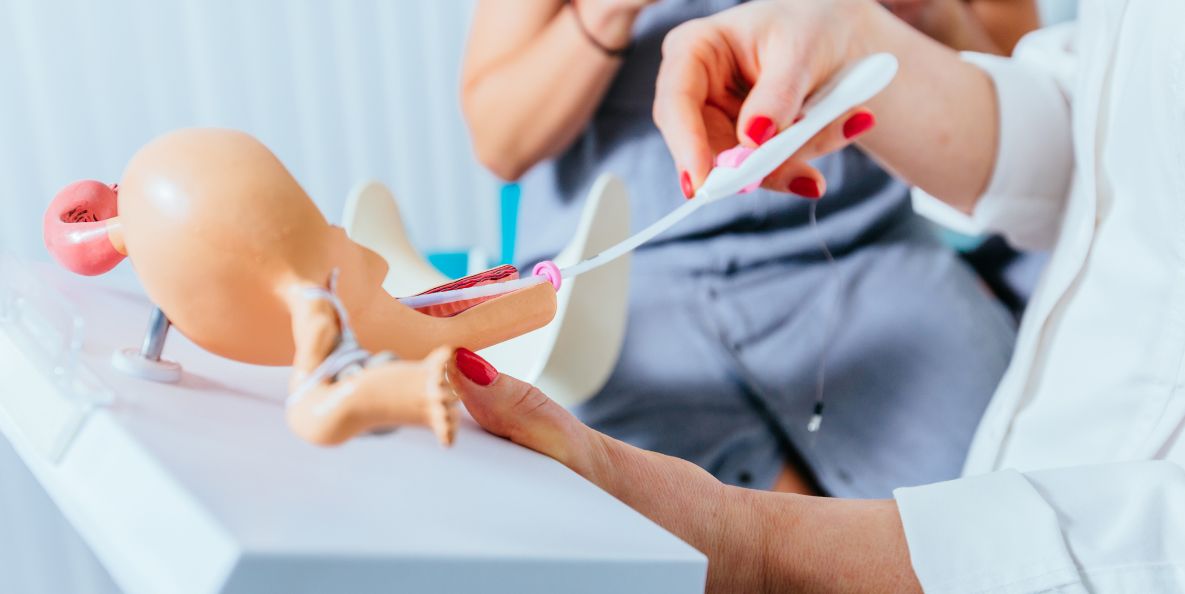Categories
What to expect after IUI?
Oct 20, 2022
IUI is most commonly used in couples who have: Unexplained infertility – One of the first treatments for unexplained fertility is IUI, along with ovulation-inducing medications.
Cervical factor infertility – If the cervical mucus is too thick, it might impede the sperm’s journey or the cervix itself might prevent the sperm from reaching the egg. With IUI, the cervix is bypassed as the sperm is deposited directly into the uterus.
Semen allergy – Although rare, women can be allergic to proteins in their partner’s semen. In such cases, burning, redness and swelling can occur where the semen contacts the skin. IUI is recommended in such cases as many of the proteins in the semen are removed before the sperm is inserted into the uterus.
Mild male factor infertility (subfertility) – If the male’s semen analysis shows that there’s weak motility of sperm, below-average sperm concentration or abnormalities in the size and shape of the sperm, then IUI can help overcome these problems as the sperm that is to be deposited into the uterus is prepared by separating highly motile and normal sperm from those of lower quality.
Endometriosis-related infertility – One of the first treatment approaches for endometriosis-related infertility is performing IUI along with using medications to obtain a good quality egg.
Donor sperm – IUI is the most common method used for women who need to use donor sperm to get pregnant. At BirthRight Fertility by Rainbow, the IUI process is performed by tracking the ovulation time so that maximum sperm flow to the fallopian tubes is ensured, to increase the chances of conception.
At BirthRight Fertility by Rainbow, the best IUI centre in Hyderabad, three methods of IUI are performed:
Natural IUI – Natural IUI is the first treatment approach used for mild male factor infertility, unexplained infertility, donor sperm insemination and minimal endometriosis. Natural IUI is considered to be the closest to natural conception since no medication is involved in this process. For it to work successfully, the woman should ovulate regularly and have at least one of the fallopian tubes open. Our doctors monitor the timing of ovulation using ovulation predictors, through measurement of basal body temperature or by ultrasound monitoring. When the egg would be ready to be released, the specialists at Birthright by Rainbow will perform IUI by placing the sperm directly into the uterus.
Clomid and IUI – Sometimes, medication is required to stimulate the production of eggs or to further enhance ovulation, despite natural ovulation. The most commonly prescribed medication for this is clomiphene citrate. The ovulation timing would still be monitored to perform IUI.
Fertility Medication and IUI – The IUI can also be performed with injectable fertility medications. These medications supplement the production of the FSH, a natural hormone in the body. Multiple eggs develop and mature during the menstrual cycle, due to this. There are chances of multiple births with this method.
What to expect after IUI?
Fertilization – This can happen anywhere from a few hours to a day or two following IUI. You won’t feel any symptoms of pregnancy, even if an egg is fertilized.
Implantation – After fertilization, your egg will move down the fallopian tubes and into the uterus. It will embed itself in the lining of the uterus, once there. Then, your body will begin producing the pregnancy hormone HCG. This hormone is responsible for pregnancy symptoms such as morning sickness and is detected by pregnancy tests. Implantation generally occurs 5 to 12 days after IUI.
Pregnancy – Technically, pregnancy begins with implantation. After two weeks, you should take a pregnancy test. If the test is positive, you will have to undergo other tests to make sure that it is a healthy pregnancy and your hormones are well-balanced.
IUI success rate
Since every couple has a different response to IUI, it is difficult to predict its success rate. Various factors such as age, underlying infertility diagnosis, usage of fertility drugs and other underlying fertility concerns can affect the outcome.
IUI success rates by age – IUI success rates tend to decrease in women over the age of 40.
IUI success rates by IUI cycles – IUI success rates tend to decrease in women who have not gotten pregnant after three cycles of IUI.
IUI success rate on the first try – Studies have shown that 88% of all successful IUI’s happen within the first three cycles and 95% within four cycles.
Cervical factor infertility – If the cervical mucus is too thick, it might impede the sperm’s journey or the cervix itself might prevent the sperm from reaching the egg. With IUI, the cervix is bypassed as the sperm is deposited directly into the uterus.
Semen allergy – Although rare, women can be allergic to proteins in their partner’s semen. In such cases, burning, redness and swelling can occur where the semen contacts the skin. IUI is recommended in such cases as many of the proteins in the semen are removed before the sperm is inserted into the uterus.
Mild male factor infertility (subfertility) – If the male’s semen analysis shows that there’s weak motility of sperm, below-average sperm concentration or abnormalities in the size and shape of the sperm, then IUI can help overcome these problems as the sperm that is to be deposited into the uterus is prepared by separating highly motile and normal sperm from those of lower quality.
Endometriosis-related infertility – One of the first treatment approaches for endometriosis-related infertility is performing IUI along with using medications to obtain a good quality egg.
Donor sperm – IUI is the most common method used for women who need to use donor sperm to get pregnant. At BirthRight Fertility by Rainbow, the IUI process is performed by tracking the ovulation time so that maximum sperm flow to the fallopian tubes is ensured, to increase the chances of conception.
At BirthRight Fertility by Rainbow, the best IUI centre in Hyderabad, three methods of IUI are performed:
Natural IUI – Natural IUI is the first treatment approach used for mild male factor infertility, unexplained infertility, donor sperm insemination and minimal endometriosis. Natural IUI is considered to be the closest to natural conception since no medication is involved in this process. For it to work successfully, the woman should ovulate regularly and have at least one of the fallopian tubes open. Our doctors monitor the timing of ovulation using ovulation predictors, through measurement of basal body temperature or by ultrasound monitoring. When the egg would be ready to be released, the specialists at Birthright by Rainbow will perform IUI by placing the sperm directly into the uterus.
Clomid and IUI – Sometimes, medication is required to stimulate the production of eggs or to further enhance ovulation, despite natural ovulation. The most commonly prescribed medication for this is clomiphene citrate. The ovulation timing would still be monitored to perform IUI.
Fertility Medication and IUI – The IUI can also be performed with injectable fertility medications. These medications supplement the production of the FSH, a natural hormone in the body. Multiple eggs develop and mature during the menstrual cycle, due to this. There are chances of multiple births with this method.
What to expect after IUI?
Fertilization – This can happen anywhere from a few hours to a day or two following IUI. You won’t feel any symptoms of pregnancy, even if an egg is fertilized.
Implantation – After fertilization, your egg will move down the fallopian tubes and into the uterus. It will embed itself in the lining of the uterus, once there. Then, your body will begin producing the pregnancy hormone HCG. This hormone is responsible for pregnancy symptoms such as morning sickness and is detected by pregnancy tests. Implantation generally occurs 5 to 12 days after IUI.
Pregnancy – Technically, pregnancy begins with implantation. After two weeks, you should take a pregnancy test. If the test is positive, you will have to undergo other tests to make sure that it is a healthy pregnancy and your hormones are well-balanced.
IUI success rate
Since every couple has a different response to IUI, it is difficult to predict its success rate. Various factors such as age, underlying infertility diagnosis, usage of fertility drugs and other underlying fertility concerns can affect the outcome.
IUI success rates by age – IUI success rates tend to decrease in women over the age of 40.
IUI success rates by IUI cycles – IUI success rates tend to decrease in women who have not gotten pregnant after three cycles of IUI.
IUI success rate on the first try – Studies have shown that 88% of all successful IUI’s happen within the first three cycles and 95% within four cycles.











